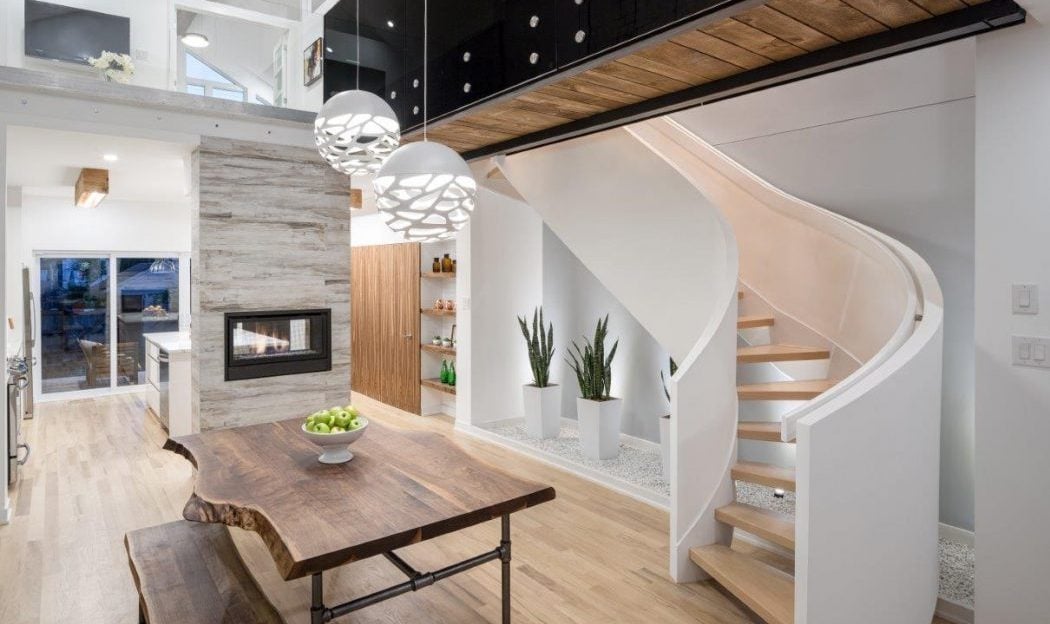Yes, you absolutely deserve that gleaming new kitchen or swanky addition but here’s what you need to know before renovating. Why? Because renovations can be complex, time-consuming and costly, so before signing on the dotted line, have a look at our expert tips.
Timeframes
How long do you plan to stay in your home? asks Houry Avedissian of Ha² Architectural Design. Your answer will help dictate your budget. If this is your Forever Home – 20 years plus – you may want to spend more for long-term enjoyment and comfort, according to Avedissian. “If you plan to live there for a short amount of time, you may consider the essentials only to facilitate future resale.”
Design choices
What you need to know about renovating includes hiring the right professionals from the start, says Penny Southam of Southam Design. If you’re planning an addition or removing load-bearing walls, that means either a registered interior designer or architect to prepare the design and permit drawings.
You should also invest in detailed drawings, including all architectural detailing, cabinetry design, plumbing fixtures, lighting design and specifications, says Southam. “This investment, albeit more expensive than a base design package, will save you tens of thousands of dollars during the construction process, keep the construction budget in check (you’ll know exactly what it costs before you start), and fast-track the construction timeline.”
Your contractor
Architects and designers frequently have contractors with whom they work on a regular basis, so you can ask for a recommendation knowing that the names you get should be reliable ones. However, always do your due diligence by asking for, and checking, references and, if possible, viewing some of the work the contractor has done.
RenoMark contractors are part of a national program that requires members to abide by a code of conduct that includes providing a detailed, written contract and offering a minimum two-year warranty.
The renovation process
If you’re a novice at renovations, spend some time finding out what you and your family can expect during a renovation, especially if it’s a major one involving structural work. It’s a key part of learning what you need to know about renovating.
It’s a good idea to review the contract with your contractor before he or she starts work so you’re both aware of what is going to happen when, and who is responsible for what. For example, what sort of access are you going to give the crew to bathrooms, your kitchen and other areas of your home that are not being renovated, and how is your contractor going to deal with change requests you might make once the project is underway?
For more information on these and other renovation matters, visit the Canadian Home Builders’ Association website.
When renovations go awry
Despite everyone’s best efforts, renovations sometimes go off the rails. What to do if you’re not happy with what’s happening?
“If you’re in the middle of the reno, it’s best to have a talk with all parties concerned to see what the issue is and how best to resolve the situation,” advises Avedissian. “Stay honest about your concerns from the beginning.
“If the work is not done well, you can ask them to redo it, or end the contract altogether. If (the latter) happens, you can withhold the retainer you should have had on the contractor.”
Avedissian adds that if the work is poorly done, you have the right to hire someone else to correct the mistakes and ask the original contractor to pay. However, actually collecting is “easier said than done.”
Mission accomplished
If all has gone according to plan, why not let others know how pleased you are with your renovation team? A written testimonial, a mention on Facebook, a good word over the backyard fence: personal recommendations like these make all the difference when someone else is looking to renovate.
Related
Bryan Baeumler’s tips for hiring a contractor

